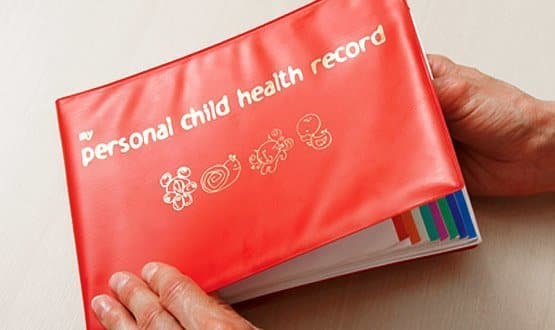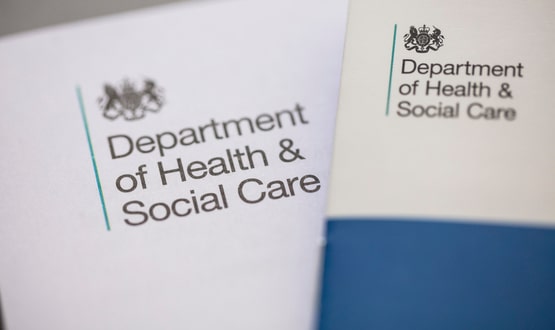Child health records set to be digitised earlier than planned

Personal child health records are set to be digitised earlier than planned under government plans to give families greater access to their children’s data.
Working with NHSX, the government is bringing forward work to digitise the records, often referred to as the ‘Red Book’, which contains babies’ information about their growth and development.
Digitising the records will ensure information is easier to store, will protect it from being lost, and make it easier to share with medical staff, according to the Department of Health and Social Care.
This will apply to every new birth from April 2023, a year earlier than originally planned. The NHS Long Term Plan, published in January 2019, promised a digital version of the ‘Red Book’ would be made available to the whole country by 2023/24.
Health and social care secretary, Matt Hancock, said: “Everybody should have a solid foundation on which to build their health and we are determined to level up the opportunities for children, no matter their background from or where they grow up.”
The work is part of the Early Years Review which aims to set out a vision for best practice across the health system to ensure children get the best possible start in life.
Lead by MP Andrea Leadsom, the review sets out six areas of action to “level up” support provided to children and families across the country.
They include:
- Seamless support for families: Local authorities will be encouraged to publish a clear Start for Life offer for parents in their area
- A welcoming hub for families: Building on the government’s commitment to champion Family Hubs, making them a place for families to access Start for Life services
- The information families need when they need it: Designing digital, virtual and telephone services around the needs of the family, including digitising the Personal Child Health Record, commonly known as the ‘Red Book’
- An empowered Start for Life workforce: Developing a modern skilled workforce to meet the changing needs of families with babies
- Continually improving the Start for Life offer: Health services for families and babies must improve data, evaluation, and outcomes to ensure it is meeting a family’s needs
- Leadership for change: Work will begin to encourage local areas to nominate a leader and to ensure the delivery of the review is overseen at a national level
The Department for Health and Social Care will work with Public Health England, NHS England and Improvement and local governments to set out the Start for Life journey of parents and carers, including how they experience digital, virtual and telephone-based services.
Health minister Jo Churchill said: “We know the 1,001 critical days are crucial for development and impact a child’s health for the rest of their life.
“Most babies are born healthy and enjoy a safe and nurturing childhood. However, some do not, therefore I am committed to removing barriers so all children are supported and nurtured so they are ready for life.
“This vision document sets out key areas for improvement to ensure every child has an opportunity to thrive and achieve their potential, regardless of their background.”
Leadsom added: “The coronavirus pandemic has put even more pressure on already struggling families and, just as we need to level up economic opportunity across the country, we need to level up the support and care for the very youngest.
“The 6 action areas will have a transformational impact on our society, and I am looking forward to the implementation phase of the review where we will continue to work closely with families and the early years sector.”





4 Comments
Will entries in the paper Red Book be backed up by digital records? Some families will choose the paper copy then lose it
“This will apply to every new birth from April 2023, a year earlier than originally planned. The NHS Long Term Plan, published in January 2019, promised a digital version of the ‘Red Book’ would be made available to the whole country by 2023/24.”
What about the parents who don’t have access to mobile IT -or don’t necessarily share the enthusiasm for data gathering lauded by Matt Hancock?
And choice?
Is this something that parents can choose – or something that will replace the hand-held, parent owned, paper based Red Book?
I suspect that the most deprived/”hard to reach” children & their mothers will be lost to view when/if the Red Book becomes purely electronic!
There is already a digital Redbook in active use across 28% of England. eRedbook is being used across London and part of East Anglia. The benefits are huge especially during Covid where health Visitors have been able to carry out remote consultations and see and write into the eRedbook. More information is available at https://www.eredbook.org.uk
The plan is to offer a digital redbook to every new birth – it is not to go purely electronic at the expense of some of the most vulnerable families. Under the model parents can still opt to choose to have the paper instead. This is how it is working in London.
As you highlight it is very important to retain the option and also for professionals to know whether a parent has chosen to have the digital redbook or the paper one. The messaging to enable this to happen is currently being implemented.
Comments are closed.